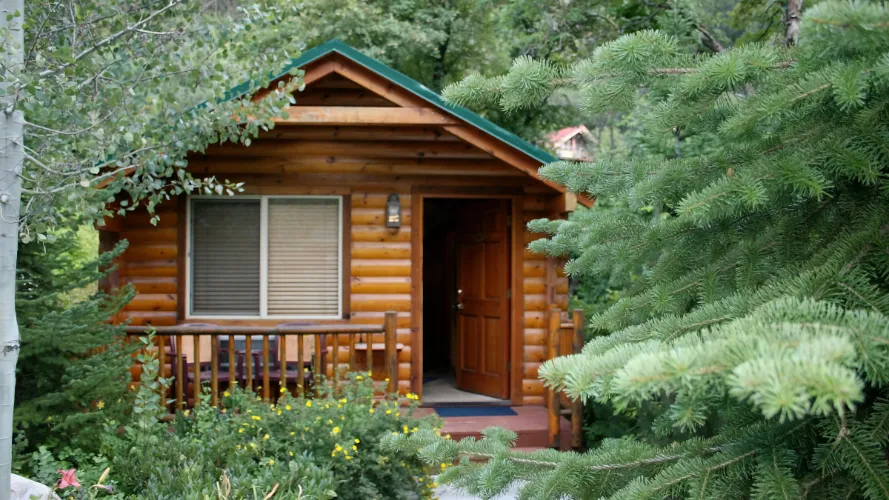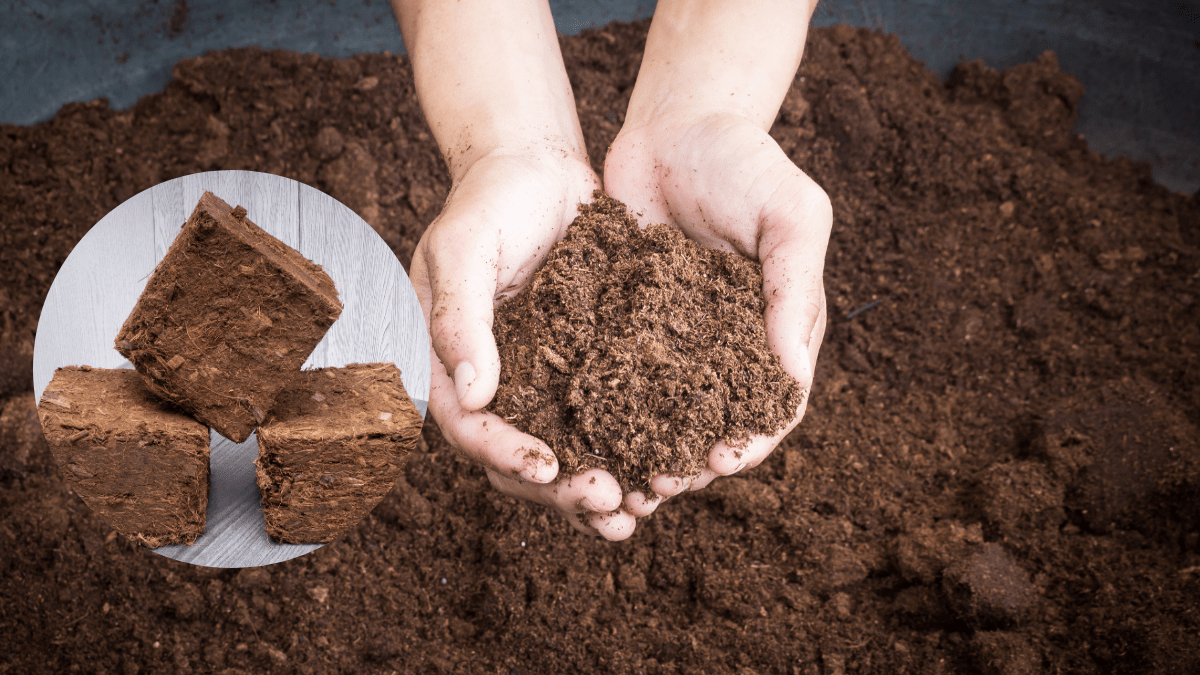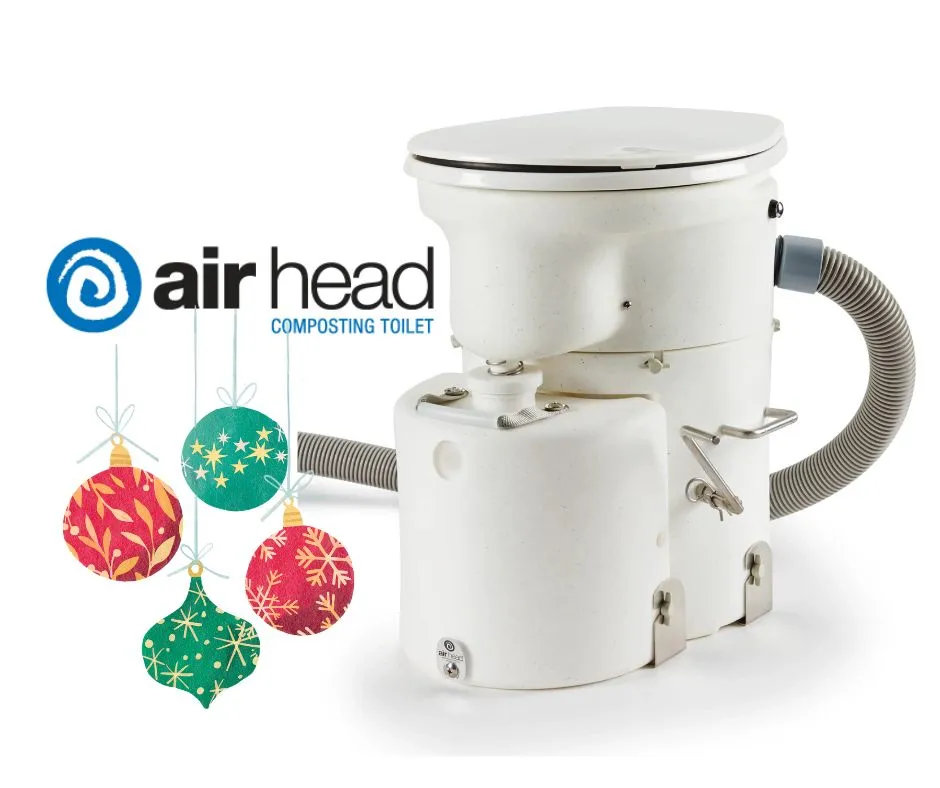
The allure of escaping to a remote cabin—away from the hustle and bustle of modern life—has grown significantly through the years. Whether it’s a weekend retreat or a permanent off-grid dwelling, more people are finding comfort and solace in nature. However, this brings challenges, especially when it comes to sustainability and practicality.
One of the biggest issues in remote living is waste management, especially in relation to toilets. This is where composting toilets come in, offering a simple yet revolutionary solution that perfectly complements the ethos of off-grid living. Among the many options available, the Air Head composting toilet stands out as a leader in this space.
In this article, we’ll explore why composting toilets are the future of remote cabins, focusing on how they align with sustainable living principles and highlighting the unique features of Air Head composting toilets that make them an ideal choice.
Living in a remote cabin often means having limited access to water, power, and sewage systems. Composting toilets address many of these limitations by offering a waterless solution to human waste management.
Traditional flushing toilets require significant amounts of water—around 1.6 gallons per flush—which isn’t a viable option in many remote locations. On the other hand, composting toilets use natural processes to break down waste, turning it into compost that can be safely disposed of or even used to fertilize non-edible plants.
By using a composting toilet, remote cabin dwellers can reduce their environmental footprint. With water conservation becoming an increasingly relevant issue, particularly in regions prone to drought, the zero-water design of composting toilets ensures that you’re contributing to water-saving efforts.
It’s also interesting to know that the decomposition process of these toilets doesn’t require large power sources, which is a bonus for cabins relying on solar panels or other off-grid power systems.
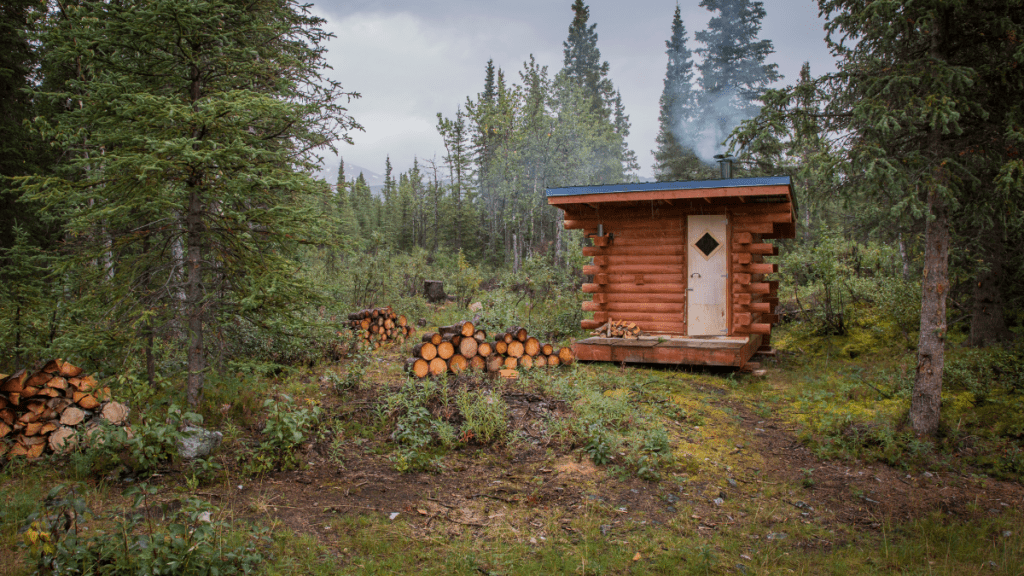
When it comes to reducing environmental impact, composting toilets offer more than just water conservation. By composting human waste, these toilets prevent harmful sewage runoff from contaminating groundwater—a common issue with traditional septic systems in rural areas. Septic tanks require significant maintenance and can be expensive to install. They can also pose the risk of leaks and overflows, which could lead to pollution of local water sources.
With a composting toilet like the Air Head, you eliminate the need for a septic system altogether, ensuring that your cabin’s waste management system doesn’t harm the surrounding environment. These toilets keep waste contained and separate liquids and solids for easier composting, significantly minimizing the risk of odor or contamination.

Composting toilets are designed to meet the challenges of remote living, where traditional waste management options like septic systems or sewage hookups are often unavailable.
For off-grid cabins located in isolated areas, a composting toilet offers a self-contained, waterless solution that’s easy to install and maintain. These toilets use natural processes to break down waste into compost, eliminating the need for water or electricity, making them perfect for locations relying on limited resources like solar power. Their compact design also makes them a practical fit for small spaces, such as tiny homes or remote cabins where every square inch counts.
Composting toilets are built to operate efficiently in all types of environments, from dry, arid regions to humid climates. They are designed to contain and manage waste without relying on external plumbing or power, meaning that you can maintain a hygienic, eco-friendly waste system even in the most isolated locations.

Features like odor control mechanisms, solid-liquid separation, and minimal maintenance needs make composting toilets a convenient and sustainable choice for anyone embracing off-grid or remote living. This ease of use, combined with their environmentally friendly design, makes composting toilets an ideal option for those looking to reduce their ecological footprint while living in harmony with nature.
Running and maintaining a remote cabin is all about efficiency, and the Air Head composting toilet scores high marks here. Unlike traditional septic systems, which can be costly to install and maintain, a composting toilet offers a more affordable solution. Once installed, the Air Head toilet requires minimal upkeep. You’ll need to empty the liquid container regularly, but the solids compartment only needs to be emptied every few weeks or even months, depending on usage.
This low-maintenance design is perfect for remote cabins where access to professional services might be limited. The toilet itself has few moving parts, reducing the risk of mechanical issues, and because it doesn’t rely on much electricity for its composting process (just a small fan that uses negligible power), it’s an ideal solution for cabins relying on solar energy or other off-grid power sources.
Whether you’re building a tiny home, a remote cabin, or a workshop, composting toilets fit naturally into a sustainable lifestyle. The ability to manage waste independently of municipal systems is a huge advantage in these settings. Composting toilets like the Air Head are compact, making them easy to install even in the smallest of cabins or mobile setups. Their low-energy, low-water design makes them an ideal choice for cabins that are powered by renewable energy sources like solar or wind.
Moreover, for environmentally-conscious individuals, composting toilets represent a step toward a more self-sufficient and eco-friendly lifestyle. The knowledge that your waste management system is closed-loop—turning waste into compost instead of polluting water supplies—is empowering and aligns with the growing movement toward sustainable living.
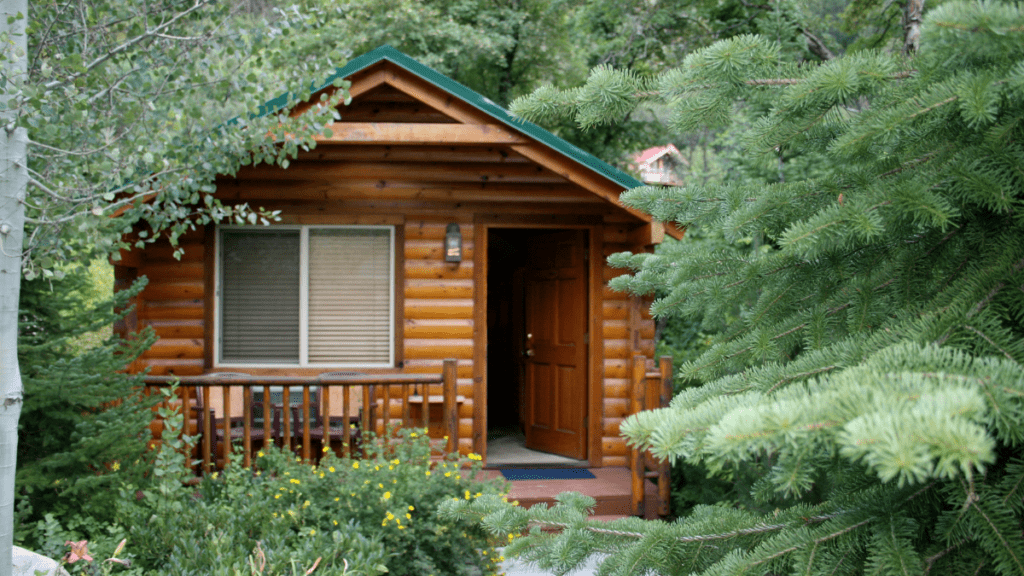
As composting toilets gain popularity for sustainable off-grid living and cabin homes, the Air Head Composting Toilet stands out as a top choice. Among the many composting toilets available on the market, the Air Head composting toilet has some standout features that make it particularly well-suited for remote cabins. With its eco-friendly design and efficient waste management, it offers a practical, green solution that more people are turning to for remote living.
Composting toilets are not just a trend; they’re the future of remote living. They offer a practical, eco-friendly solution to one of the most fundamental challenges of life in a remote cabin—waste management. The Air Head composting toilet stands out among the competition, offering exceptional odor control, ease of use, and durability, making it the perfect choice for any remote cabin setup.
By embracing composting toilets, you can reduce your environmental impact, enjoy greater independence, and make your cabin an even more sustainable haven. So, whether you’re planning to build a cabin in the woods or upgrading your off-grid lifestyle, choosing a composting toilet is one of the smartest decisions you can make for both your home and the environment.
1. How do composting toilets work in remote cabins?
Composting toilets break down waste using natural processes, requiring no water or external sewage systems. This makes them ideal for remote locations without access to plumbing.
2. Why are composting toilets better for off-grid living?
They require no water, and minimal electricity, are easy to maintain, and offer an eco-friendly waste solution, making them perfect for off-grid or remote cabins.
3. Do composting toilets smell?
No, high-quality composting toilets like the Air Head use ventilation systems and rubber gaskets to control odors effectively.
4. How often do you need to empty a composting toilet?
The liquid container should be emptied regularly, while the solids compartment typically needs emptying every few months, depending on usage.
5. Can composting toilets be installed in small spaces?
Yes, composting toilets are compact and ideal for small spaces like cabins, tiny homes, or boats.
6. What makes the Air Head Composting Toilet unique?
The Air Head features a solid-liquid separation system, efficient odor control with rubber gaskets, and suitability for wet installations, making it ideal for remote cabins.

The allure of escaping to a remote cabin—away from the hustle and bustle of modern life—has grown significantly through the years. Whether it’s a weekend retreat or a permanent off-grid dwelling, more people are finding comfort and solace in nature. However, this brings challenges, especially when it comes to sustainability and practicality.
One of the biggest issues in remote living is waste management, especially in relation to toilets. This is where composting toilets come in, offering a simple yet revolutionary solution that perfectly complements the ethos of off-grid living. Among the many options available, the Air Head composting toilet stands out as a leader in this space.
In this article, we’ll explore why composting toilets are the future of remote cabins, focusing on how they align with sustainable living principles and highlighting the unique features of Air Head composting toilets that make them an ideal choice.
Living in a remote cabin often means having limited access to water, power, and sewage systems. Composting toilets address many of these limitations by offering a waterless solution to human waste management.
Traditional flushing toilets require significant amounts of water—around 1.6 gallons per flush—which isn’t a viable option in many remote locations. On the other hand, composting toilets use natural processes to break down waste, turning it into compost that can be safely disposed of or even used to fertilize non-edible plants.
By using a composting toilet, remote cabin dwellers can reduce their environmental footprint. With water conservation becoming an increasingly relevant issue, particularly in regions prone to drought, the zero-water design of composting toilets ensures that you’re contributing to water-saving efforts.
It’s also interesting to know that the decomposition process of these toilets doesn’t require large power sources, which is a bonus for cabins relying on solar panels or other off-grid power systems.

When it comes to reducing environmental impact, composting toilets offer more than just water conservation. By composting human waste, these toilets prevent harmful sewage runoff from contaminating groundwater—a common issue with traditional septic systems in rural areas. Septic tanks require significant maintenance and can be expensive to install. They can also pose the risk of leaks and overflows, which could lead to pollution of local water sources.
With a composting toilet like the Air Head, you eliminate the need for a septic system altogether, ensuring that your cabin’s waste management system doesn’t harm the surrounding environment. These toilets keep waste contained and separate liquids and solids for easier composting, significantly minimizing the risk of odor or contamination.

Composting toilets are designed to meet the challenges of remote living, where traditional waste management options like septic systems or sewage hookups are often unavailable.
For off-grid cabins located in isolated areas, a composting toilet offers a self-contained, waterless solution that’s easy to install and maintain. These toilets use natural processes to break down waste into compost, eliminating the need for water or electricity, making them perfect for locations relying on limited resources like solar power. Their compact design also makes them a practical fit for small spaces, such as tiny homes or remote cabins where every square inch counts.
Composting toilets are built to operate efficiently in all types of environments, from dry, arid regions to humid climates. They are designed to contain and manage waste without relying on external plumbing or power, meaning that you can maintain a hygienic, eco-friendly waste system even in the most isolated locations.

Features like odor control mechanisms, solid-liquid separation, and minimal maintenance needs make composting toilets a convenient and sustainable choice for anyone embracing off-grid or remote living. This ease of use, combined with their environmentally friendly design, makes composting toilets an ideal option for those looking to reduce their ecological footprint while living in harmony with nature.
Running and maintaining a remote cabin is all about efficiency, and the Air Head composting toilet scores high marks here. Unlike traditional septic systems, which can be costly to install and maintain, a composting toilet offers a more affordable solution. Once installed, the Air Head toilet requires minimal upkeep. You’ll need to empty the liquid container regularly, but the solids compartment only needs to be emptied every few weeks or even months, depending on usage.
This low-maintenance design is perfect for remote cabins where access to professional services might be limited. The toilet itself has few moving parts, reducing the risk of mechanical issues, and because it doesn’t rely on much electricity for its composting process (just a small fan that uses negligible power), it’s an ideal solution for cabins relying on solar energy or other off-grid power sources.
Whether you’re building a tiny home, a remote cabin, or a workshop, composting toilets fit naturally into a sustainable lifestyle. The ability to manage waste independently of municipal systems is a huge advantage in these settings. Composting toilets like the Air Head are compact, making them easy to install even in the smallest of cabins or mobile setups. Their low-energy, low-water design makes them an ideal choice for cabins that are powered by renewable energy sources like solar or wind.
Moreover, for environmentally-conscious individuals, composting toilets represent a step toward a more self-sufficient and eco-friendly lifestyle. The knowledge that your waste management system is closed-loop—turning waste into compost instead of polluting water supplies—is empowering and aligns with the growing movement toward sustainable living.

As composting toilets gain popularity for sustainable off-grid living and cabin homes, the Air Head Composting Toilet stands out as a top choice. Among the many composting toilets available on the market, the Air Head composting toilet has some standout features that make it particularly well-suited for remote cabins. With its eco-friendly design and efficient waste management, it offers a practical, green solution that more people are turning to for remote living.
Composting toilets are not just a trend; they’re the future of remote living. They offer a practical, eco-friendly solution to one of the most fundamental challenges of life in a remote cabin—waste management. The Air Head composting toilet stands out among the competition, offering exceptional odor control, ease of use, and durability, making it the perfect choice for any remote cabin setup.
By embracing composting toilets, you can reduce your environmental impact, enjoy greater independence, and make your cabin an even more sustainable haven. So, whether you’re planning to build a cabin in the woods or upgrading your off-grid lifestyle, choosing a composting toilet is one of the smartest decisions you can make for both your home and the environment.
1. How do composting toilets work in remote cabins?
Composting toilets break down waste using natural processes, requiring no water or external sewage systems. This makes them ideal for remote locations without access to plumbing.
2. Why are composting toilets better for off-grid living?
They require no water, and minimal electricity, are easy to maintain, and offer an eco-friendly waste solution, making them perfect for off-grid or remote cabins.
3. Do composting toilets smell?
No, high-quality composting toilets like the Air Head use ventilation systems and rubber gaskets to control odors effectively.
4. How often do you need to empty a composting toilet?
The liquid container should be emptied regularly, while the solids compartment typically needs emptying every few months, depending on usage.
5. Can composting toilets be installed in small spaces?
Yes, composting toilets are compact and ideal for small spaces like cabins, tiny homes, or boats.
6. What makes the Air Head Composting Toilet unique?
The Air Head features a solid-liquid separation system, efficient odor control with rubber gaskets, and suitability for wet installations, making it ideal for remote cabins.
